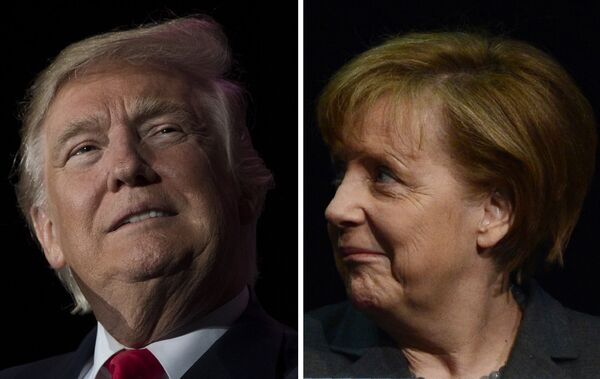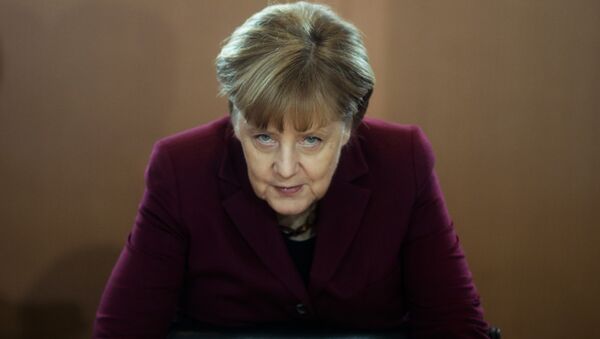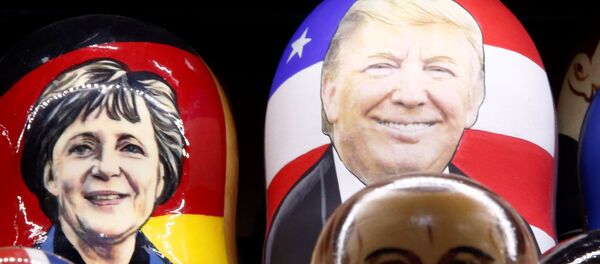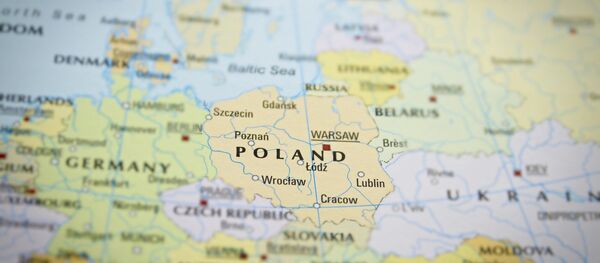Speaking to Sputnik Polish, Adam Wielomski, Chief Editor of Konserwatyzm.pl, pointed out that Donald Trump's rise to the US presidency has obviously messed things up for European politicians.
Wielomski highlighted that the US President-elect has never concealed his intention to reconsider US foreign strategy, including Washington's relations with its allies, or, to "shake the rust off America's foreign policy," as Trump himself defined it.
"A few days ago, in his broad interview with Western European media, Trump, as they say, openly praised the UK's withdrawal from the EU and even spoke in favor of dismantling the old EU structure," Wielomski emphasized.
For its part, Germany, the EU's biggest economy, is willing to protect the bloc's existing order and is now seeking support among EU member states, he added.
"I believe that [German Chancellor Angela] Merkel is looking for allies within the EU," the Polish journalist assumed, "[she] wants to win the support of those countries… whose voice is heard in the EU and who at the same time have good relations with the US. Poland, for instance."
On Monday, Beata Mazurek, a spokeswoman for the ruling Law and Justice (PiS) party, told journalists that Merkel is due to visit Poland at the invitation of Polish Prime Minister Beata Szydlo, Radio Polskie reported.
It is hardly surprising that Merkel wants to gain support within the bloc, given the hidden rivalry between the US President-elect and the German Chancellor.
In his recent interview with the UK newspaper The Times and Germany's Bild, Trump criticized Merkel for her open door migration policy and praised the UK for the "smart decision" to leave the EU.
Merkel's reply was not long in coming.
"I think we, the Europeans, have our fate in our own hands. I will continue pressing for intensive and most importantly forward-looking cooperation between the 27 member states," Merkel told reporters in response to Trump's remarks.
Alexey Fenenko, an expert at the Russian Council on International Affairs, believes that Trump's statement as well as his promise to sign a trade deal with Britain to help the latter overcome post-Brexit difficulties is part of his "anti-German game."
"There is an element of the anti-German game, as US assistance in Brexit is certainly a blow to European unity, or rather, to its version, where Germany is a dominant force," Fenenko told RIA Novosti.

"We are dealing with a sort of international 'collective policy' pursued by Democrats together with the 'war establishment' of Democrats and Republicans in Washington. So, there is a certain role offered to Mrs. Merkel. If one remembers what Merkel said last week regarding the US presidential election, one will see that she is willing to play this role," Willy Wimmer, former Vice President of the OSCE Parliamentary Assembly and ex-State Secretary in the German Defense Ministry, told Sputnik Deutschland in November, 2016.
Wielomski believes that the EU's Eastern policy will become the focus of Merkel and her Polish counterparts' attention after Trump's inauguration.
"Up until now, it has been largely financed by the United States, which in recent years provided support to Ukraine and [funded] 'color' revolutions. However, this aid could be brought to an end in the near future," the Polish journalist noted.
It is quite probable that the next US administration will try to reach a détente with Russia, Wielomski assumed. In this case, the US may also reconsider its policy toward NATO's expansion to the East.
That, for its part, may throw into question Poland's role as a major NATO stronghold in Eastern Europe.
The question then arises, whether Germany and its EU allies will reconsider their foreign strategy, including their relations with Russia and whether they will begin to pursue an independent policy towards Eastern Europe without Washington's assistance.




